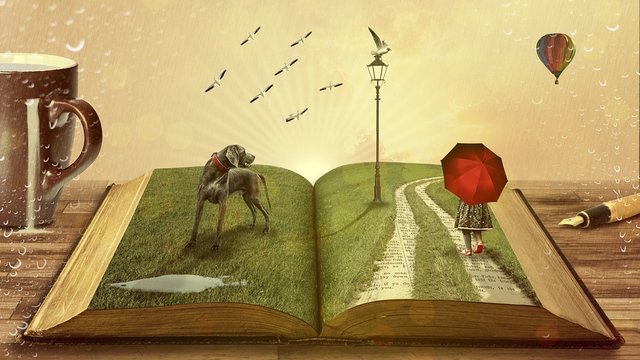Good morning and good Friday! As for some months now the appointment on this blog on Friday has become the #5cose 'initiative of the blog Twins books lovers that proposes for each Friday a thematic post, decided by all participants in the initiative, on 5 things whether books, TV series or the like. In this last appointment of February we come back to talk about books, precisely books that have taught us something.

We assume that every reading, however frivolous or light it may seem, will leave something to us when it is finished, whether it is a volatile sensation or a thought that lasts a few seconds. There are other readings, however, that creep in and make you reflect for days and days and, even months or years later, suddenly break into our thoughts in the most unlikely contexts because the lesson that they have taught us is now part of us. Having done this, let's discover which are some of the books that have taught me something.
Mabel and I. That is the art of falconry by Helen MacDonald (published by Einaudi). What can a book about falcons ever have taught me? So many, I answer. This is a book about mourning, about the personal elaboration of mourning by the author, a painful path of isolation and self-destruction in response to the death of her father, with only one hand I hold a goshawk to train that in his being an animal so detached from the "human" world will slowly bring it back to the same. Moreover, there is a sort of biography of T.H. hidden in the pages. White, an author with a troubled life and repressed sadistic tendencies, has been able to produce the book that inspired the Disney film The Sword of the Rock.
The Miserables of Victor Hugo. This huge book of about 1400 pages taught me that true life is not a fairy tale, the happy ending does not exist, there are joys and pains and often it is the latter that have the upper hand. That is not why we must stop fighting for our dreams or shut ourselves off in cynicism. Attention SPOILER: I remember as if I had finished yesterday my anger at reading the end of the story, the annoyance for the ingratitude shown by Cosette towards the best father he could ever have, even if they did not share a single drop of blood. After a while I understand that there are no heroes in this book, only human beings who struggle for life with their beliefs, right or wrong whether they are, and with their being characters at 360 °, not mere representations of an aspect of human nature, not white or black but gray as all of us.
The Geek Feminist Revolution by Kameron Hurley (unfortunately not available in English). This collection of essays has literally opened my eyes to the situation of the US health system. We complain about waiting, tickets and having to go every now and then to a private specialist who asks for a few hundred euros. Imagine what it might mean not to have access to free (or almost free) treatment for diseases such as diabetes, imagine what it would mean to inject insulin expired because you do not have health insurance, nor the money to be able to afford a dose of your life-saving drug. Regardless of the feminist battles and the author's anger at so many things that dominate the "nerd" or "geek" world, what this book has taught me is that I am lucky to be born and live here, where no one will ever come to ask me tens of thousands of euros if I feel ill and the ambulance comes to my aid.
The Lord of the Mosques of William Golding (Mondadori). This modern classic taught me that the idea of naturally good children is a fairy tale that we have been telling each other for generations. The psyche of children is not yet formed and develops in response to stimuli coming from the outside world that identify with the figures of adults. This book shows what happens when these reference figures are missing and children are left at the mercy of themselves and their instincts. Wickedness, cruelty, all the emotions classified as negative have always been part of us, only when we develop a moral thermometer can we calm our instincts. However, we need external help, and this book is proof of this.
The Things I did not say about Azar Nafisi (Adelphi) taught me that despite cultural, social and religious differences, family mechanisms move along established lines. There is no perfect family, there is no such thing as the much-vaunted obligation to love and, regardless of the voluntary nature of the family, there are preferences among family members. The background of this book is that of a country that tends to modernity ignoring what is hatching under the surface and that will bring it into a situation that we know well today and makes it difficult to believe that in the 50s it was he turned his hair in the wind on the streets of Tehran. The autobiographical story of the Nafisi is that of an important family, with links to politics. However, you can ignore everything else and rediscover thousands of kilometres away, situations that we are all familiar with. Family ties cannot be chosen, but we must fight not to destroy them by virtue of our personal needs. I'll talk about it better in the wrap up of February, since I finished this book just in the last days.